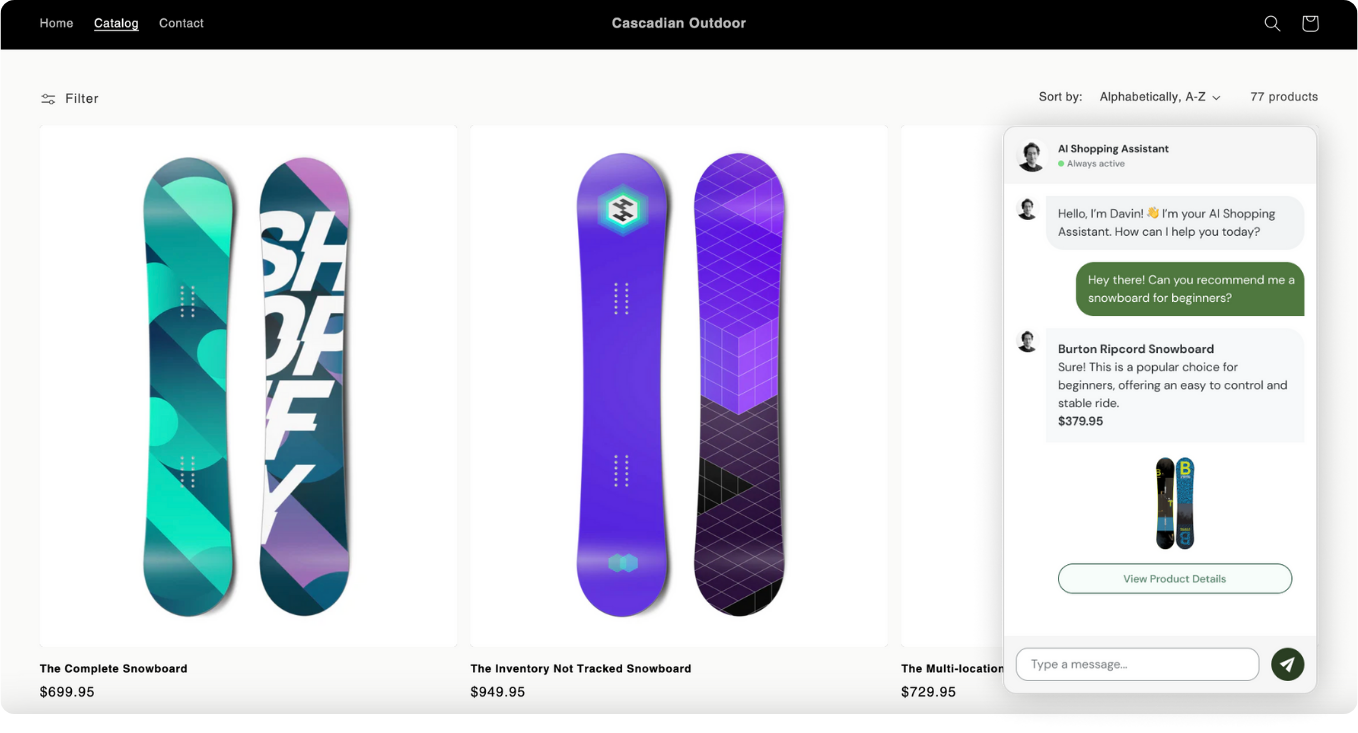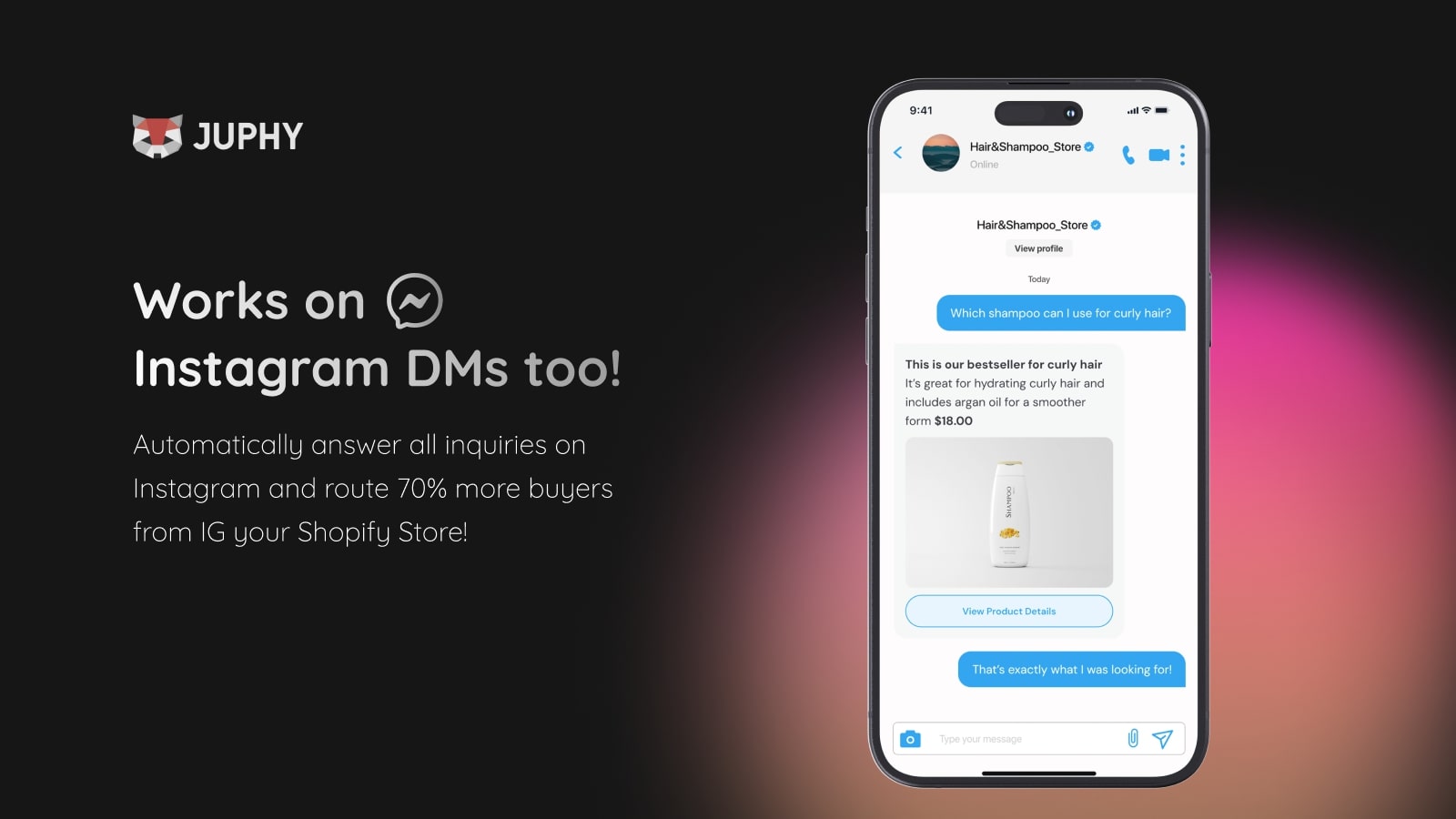Best 5 Examples of Shopify Stores
Inci Vardar
Selling goods and services over the Internet is a journey, and its starting point is marked with an attractive, easy-to-navigate, secure e-commerce website. The website stands as a digital storefront, as well as an area where you can interact with visitors and make a good impression by providing an exceptional customer experience. As you will later see in our “Best 5 Examples of Shopify Stores” list, design and functionality play a crucial role in sales potential, and Shopify provides the necessary tools to establish online stores that meet both needs.

Setting up Shop
A digital store is much like a physical store. The storefront, in this case, the landing page, should allure passersby and invite them to discover further interesting products. The products inside should be neat, making moving around the place accessible and delightful. You need to find what you are looking for easily, and it would be much better if you could view finer details and other features. When required, instant support by a competent sales assistant is a plus both in the physical store and the digital one. Also, you need to be confident to enter the store in the first place, knowing that your money and private information will be secure during and after your transaction. These elements can all be designed harmoniously, paying special attention to customer journeys and dramatically affecting your business’ future success.


Let’s discover the essential elements that should be used in e-commerce websites to succeed in this giant market. Read more now!
The Importance of Exceptional Online Store Designs
As mentioned before, design cannot be separated from functionality. A professionally designed digital shop that highlights brand elements fosters brand recognition in the highly saturated e-commerce arena. Successful design captures attention, inspires trust, delivers subtle brand messages, and drives the visitors to the desired outcome step by step. A visually appealing and user-friendly layout enhances the customer’s experience, making navigating, finding products, and completing transactions easier.
Exceptional online store designs make a huge difference, affecting essential KPIs such as website traffic, bounce rate, time on site, cart abandonment, and completed transactions. But you don’t need to reinvent the wheel or have a completely unique sense of design because Shopify offers hundreds of customizable templates and various tools that enhance customer experience.
What Sets Shopify Apart for Retailers
Shopify was born out of a dire need to “simply” make good-looking and smoothly working e-commerce websites. Computer programmer Tobias Lütke wanted to launch his e-store, but the existing providers couldn’t meet his needs. So, he launched his own e-commerce website builder.
Designed entirely with customer needs and ease of use in mind, today, Shopify serves millions of independent businesses across a range of industries all around the world. It offers a wide range of customizable templates, a robust set of tools, and an extensive app ecosystem.

The highly customizable and code-free system allows users to create unique and visually appealing websites with a complete set of features for inventory management, secure payment processing, and order fulfillment.
While most brands use Shopify only to build and manage their e-commerce stores, the platform lets you sell on additional marketplaces like Amazon, Instagram, and eBay. As well as its significantly larger app store and attractive theme library, Shopify provides versatility and simplicity on all fronts.
Shopify stores simplify all e-commerce operations for businesses of all sizes thanks to its scalability. Today, Shopify is used by 4.36 million online stores, with a total of 6.95 million websites that have used Shopify to date. Along with its unique benefits, Shopify’s excellent customer support makes it a top choice for retailers looking to establish and grow their online presence.
Now, let’s dive into some outstanding examples from different industries and draw inspiration from what they do right.
5 Exemplary Shopify Stores and What Makes These Shopify Stores Stand Out
Maguire Shoes

Sisters Romy and Myriam Maguire founded Maguire Shoes to make high-quality fashion footwear fair and accessible. This claim is seen after a few scrolls on the website, coming after the current campaign banner, a couple of highlighted products, and staff picks. Their dedication to ethical craftsmanship and transparent pricing forms the essence of the brand, and underlining this issue directly contributes to an emotional bond. The brand provides all the necessary information, supports it with high-quality imagery, and also encourages visitors with user endorsements, including related social media content. Combining all the correctly used design elements with the brand’s unique value proposition, Maguire Shoes makes an excellent example of a successful Shopify store in the clothing and apparel industry.
Terre Bleu

Terre Bleu is owned by a couple who left their hectic city life for the country. They started a lavender farm in Ontario, turning their produce into lavender-infused beauty, food, and household products. Their popular Shopify store has a clean, warm and informative design, engaging visitors with recipes and DIY projects, as well as showcasing their product line and seasonal campaigns.
Kulala

Kulala is a brand that practically sells a single product: A sleep-inducing bedside lamp that gives out red light. The product is also sold as a complete system, including a mobile app and a book. The website is an example of a very narrow niche, meaning it needs to convince the visitor that the product offers a unique solution with proven effects. Kulala does exactly that with beautiful, soothing imagery and an easy-to-the-eye design that constantly delivers the same message, including a call to action. The website is highly informative, and the brand collects high-quality leads by offering one-on-one sleep coaching.
Pot Gang

Pot Gang is a young and dynamic brand founded during the height of the COVID pandemic by people who wanted to grow their herbs and vegetables in an urban environment. Not knowing anything about home gardening, they turned their struggle into a subscription-based business that delivers monthly home-growing kits, complete with beginner-friendly guides and WhatsApp support. The brand’s social, entertaining, and supportive attitude is reflected in website design, from the clear explanations and encouraging user-generated content.
Verve Coffee Roasters

Verve Coffee started as a small physical cafe. It evolved into a multi-faceted business, including retail locations in the US and Japan, a wholesale distribution arm, and an online shop. The brand offers a subscription service and one-time orders and provides quick support with a chatbot that answers frequently asked questions or takes messages. Another noteworthy feature is that Verve Coffee engages visitors with a quiz to learn about their preferences, make personalized recommendations, and collect high-quality leads.
How to Improve Your Shopify Store
All these five examples have common features that enhance user experience, like express checkout and initiatives to promote sales, such as a first purchase discount coupon pop-up. The inspiring design and functionality elements that you can implement in your own online store can be summarized in three categories:
Enhancing User Interface and User Experience (UI/UX)
Let the users easily navigate through your Shopify store, discover related items and interesting content, and spend quality time there. With clearly defined and optimized user journeys, you can design the UI in a way that drives your visitors to a desired outcome. Another requirement of a great user experience is access to support as fast as possible. The more engaging and satisfactory the user experience, the better chances you have for bonding, thus making a sale.
Leveraging E-commerce Automation and Tools
Although it is beneficial to increase time on site, the time spent should create value because everybody wants to get a job done as fast as possible and go on with their lives instead of waiting for a page to load or find out about the return policy. There are several tools you can utilize to improve speed and convenience, some of which can save you time by automating repetitive and time-consuming tasks. This automation includes order processing, inventory management, marketing, customer support, and more. Shopify offers various tools and integrations designed to save your time and improve your customers’ shopping experience.
Here is Shopify’s take on automation and an example use case for a remarketing campaign:
Adopting Data-Driven Decision-Making
Intuition is suitable for generating creative ideas, but solid data always tells the truth. It tells you if you’ve met your KPIs, failed or expelled in customer satisfaction, and the areas of improvement for maximizing your sales potential. To make data-driven, to-the-point decisions, you can regularly obtain, review, and optimize data both via Shopify’s built-in tools and third-party integrations like Juphy.
Elevate Your E-commerce Game with Juphy
Driving more visitors to your Shopify store just got a breeze with Juphy’s innovative approach, specifically designed for Shopify businesses and backed by the ‘Built for Shopify’ badge. As the go-to solution for teams keen on elevating their social media presence, Juphy’s AI Agent not only ensures top-notch customer support across all social platforms but also empowers you with AI-driven support for speedy, on-point responses. By harnessing the power of ChatGPT and social media, Juphy takes customer engagement to new heights, making every interaction an opportunity to attract and delight potential shoppers. Plus, Juphy’s AI Agent is conveniently accessible through the Shopify dashboard.

Juphy’s ChatGPT-Powered Chatbot: Your Virtual Sales Agent
Juphy’s ChatGPT-Powered chatbot integrates seamlessly with your Shopify website and starts interacting with your customers through immediate, personalized responses in no time. The chatbot scans your entire website, gathers all the necessary information, and converses with customers in your brand’s unique tone of voice. Based on browsing patterns and previous interactions, the chatbot acts as a virtual sales associate, making tailored product suggestions, and special offers, and guiding and educating customers throughout their shopping journey. As well as providing instant customer support 24/7, the bot can smoothly apply upselling and cross-selling strategies into conversations to increase the average order value of your business.

Easy Social Social Media Management with Juphy AI
Juphy’s AI Agent enhances the shopping experience on your website and extends it directly to your Instagram DMs through its seamless social media integration. By assisting potential customers and casual browsers on your Instagram page, Juphy captures social media sales around the clock, guiding them effortlessly to your Shopify store to purchase the products they seek. This ensures a consistent brand image across all channels while providing smooth and memorable shopping experiences. Ultimately fostering a trustworthy image building a loyal customer base and allowing you to find new ways to improve your sales potential.

Last Words
Building your e-commerce website with Shopify has numerous benefits, and there are many tools and design elements you can utilize in order to make your shop more engaging, your products more desirable, and your customers more satisfied. Juphy stands as a powerful tool with its e-commerce chatbot for Shopify, and it offers a number of additional benefits that can lead your business to success.
For a more personal touch in your customer interactions, start Juphy for free today!

